

CCC’s City Budget Investment Calls are Backed by Data & What Families Need to Thrive Post-Pandemic
Insights
June 3, 2024
As headlines continue to point out financial disparity in NYC, CCC’s work remains focused on real, proven solutions that have incredible potential to positively impact families across the five boroughs. Our efforts combine related data around affordability and inequity with solutions that reduce child and family poverty and increase family well-being. In fact, our timely Keeping Track Data Book’s 2024 Edition, just released, provides critical, compelling context to our efforts to push budget investments that would make a significant difference in combating inequity exacerbated by an uneven pandemic recovery and the overlapping unaffordability crises that are driving families to near breaking point.
Keeping Track 2024 analyses data across a number of important topics that illustrate the status of child and family well-being, like health, education, housing, and more. Unaffordability in housing, food security, and child care is affecting families across the city, and data from Keeping Track underscores the severity of the impact these crises are having on families showing the need for immediate focus on the very solutions CCC is pushing forward.
Food Security
CCC has been vocal about the need to address food security as a pathway to reducing child poverty. Over the past year, with rising costs of groceries, families have been struggling with putting food on the table. In 2022, food prices increased by 9.9%, faster than in any year since 1979, and by 5.8% in 2023, and though inflation has slowed into 2024, it has not stopped. Related, new data from City Harvest finds one in four children in New York City are experiencing food insecurity. Data from Keeping Track highlights specific struggles families are facing related to food access.
Under our chapter on Economic Security is a section on Income and Food Supports. Some key points from this section are:
- In 2022, more than 1 million households were enrolled in the Supplemental Nutrition Assistance Program (SNAP). This was the first-time enrollment passed 1 million since 2012 and may continue to increase in the coming years.
- In 2023, the number of individuals served in food pantries topped 7.5 million, an indication of the widespread affordability crisis for many New Yorkers in the city.
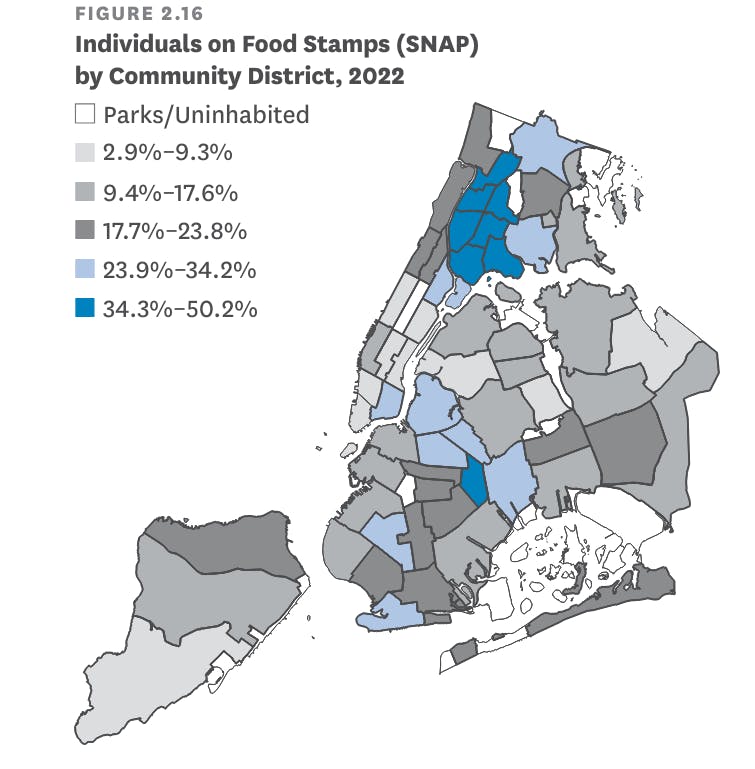
Trends indicate a rise in food insecurity and need for supplemental food assistance to combat economic insecurity. This is why CCC has a current take action addressing these trends with tangible investments in programs and services that will help the health and well-being of families and children. As stated in a recent testimony to the City Council, “Anti-hunger programs, like Community Food Connections, are a vital resource for families needing extra help in accessing healthy food options. Food insecure families rely on food pantries and kitchens when they are unable to afford groceries. [Also] Investing in food services operated by the [NYC Public Schools’] Office of Food and Nutrition Services (OFNS) allows children to have healthier breakfast and lunch options in schools so that they can better focus and thrive academically.” Currently, budget cuts are impacting multiple programs like Community Food Connections, which reduces funding to this initiative by 56%. These and other food initiatives play a crucial role in ensuring families have the food and nutrition supports needed to thrive. Take action with us to support these investments.
Housing Stability
CCC has long advocated for housing-first solutions, especially in response to sharply rising homeless shelter numbers since 2022. As shelters stay full, evictions steadily rise, and rent prices increase, housing stability is impacting more and more families. Up to 75% of households living in or near poverty are severely rent burdened, meaning rent takes up 50% or more of household income. This issue is also exacerbated by the fact that the city’s stock of affordable apartments—be it low-cost or rent stabilized—is dwindling. In fact, last year New York City experienced its largest loss of rent-stabilized apartments in eight years. This comes as our data book analysis reveals that more than 46,600 children are currently in the NYC shelter system.
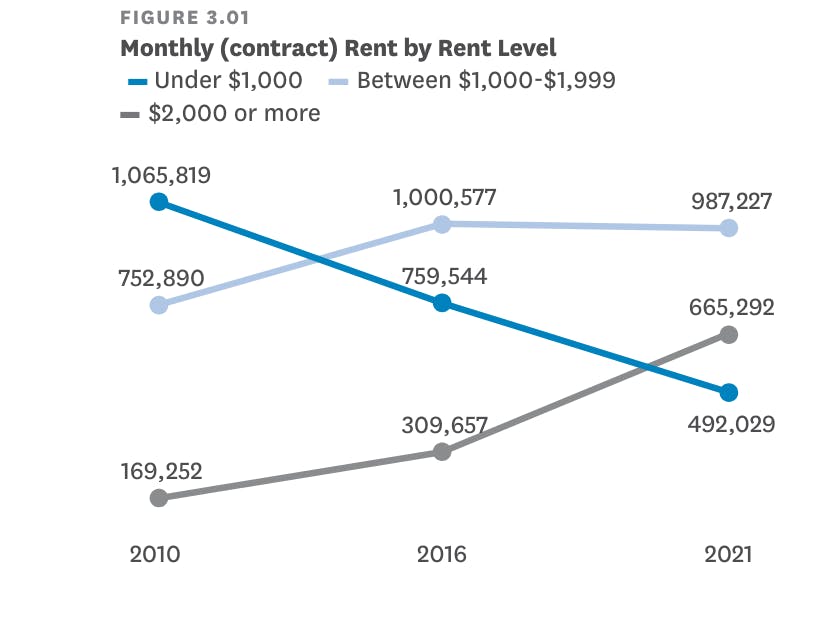
It is also important to note that racial disparity reveals itself in housing stability. In NYC, Black and Latino renter households face higher than average severe rent burden. Additionally, renters living in the outer boroughs are more likely to be burdened by rental costs. Housing instability is also connected to overcrowded housing – severely affecting families with children—roughly one in three families with children live in overcrowded housing, while overall overcrowding for all renters households is 12%. Overcrowding is most common for Asian and Latino households and particularly high for immigrant communities.
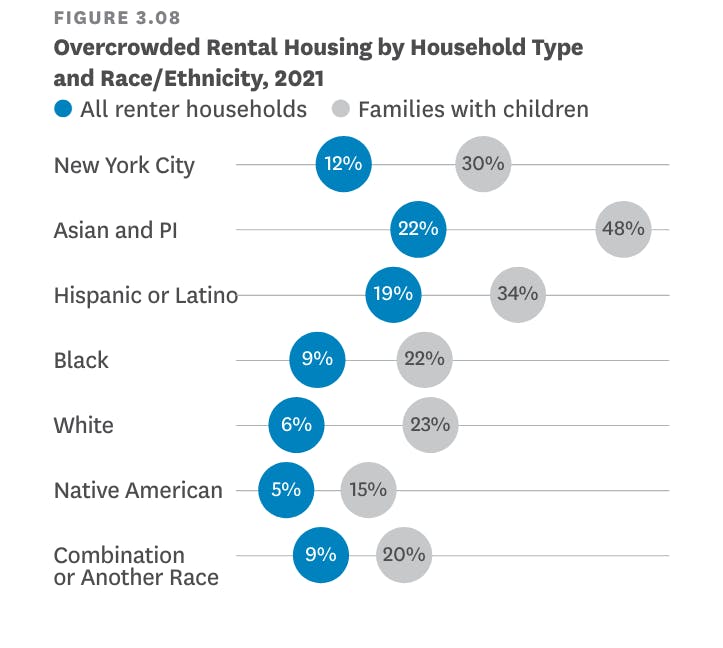
We are pushing housing-first solutions in our current city budget take action on housing that will combat these disparities. We must ensure city leaders prioritize and invest in reforms that reduce the homeless population, prevent unnecessary evictions, reduce the effects of child trauma, and are cost-effective compared to the high shelter-related costs. This includes funding and implementing CityFHEPS eligibility expansion, investing in agencies that process housing voucher benefits, and more. Take action with us now for stable housing initiatives!
Child Care Access
Recent media coverage of our Keeping Track 2024 publication has focused on the important data uncovered around child care access, especially amid budget cuts to the Department of Education impacting the city’s universal 3-K and Pre-K and uneven pandemic recovery. Lack of affordable child care severely affects a family’s economic stability and when families must choose between having an adult leave the workforce to handle child care or pay up to ~40% of income that could be spent elsewhere, it increases instability in other areas, like housing, and decreases economic well-being for communities across the city. Data is now showing how child care unaffordability is driving families out of the city at higher rates than child-less peers. According to new data from the Fiscal Policy Institute, families with children aged 6 or younger are twice as likely to move out of the city as families without young kids. Households with young children make up 14% of the city’s population but 30% of those fleeing the five boroughs.
Data from Keeping Track reveal the following on child care affordability and the city’s Early Childhood Education (3-K and Pre-K) system (ECE):
- Among income-eligible families, just over 20,000 infants and toddlers were served in the publicly funded system, leaving 93% of infants and 79% of toddlers without access to subsidized child care.
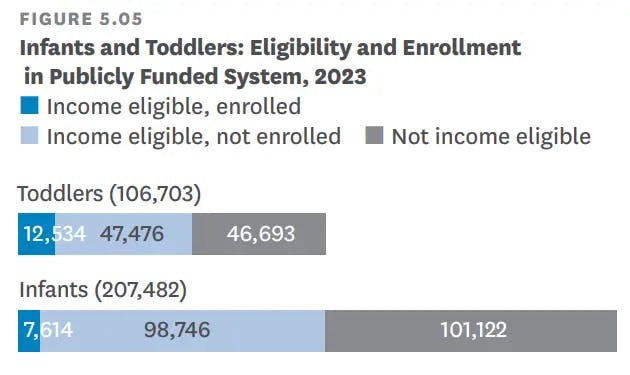
- Even in communities with the most publicly funded 3-K and Pre-k programs, a need for more services persists as up to 4 children compete for 1 publicly funded ECE seat.
- More than 80% of families with young children cannot afford child care. Single parents face more financial hurdles and only 3%-10% can afford care at market rates, which can go over $20,000 annually for infant/toddler center-based care.
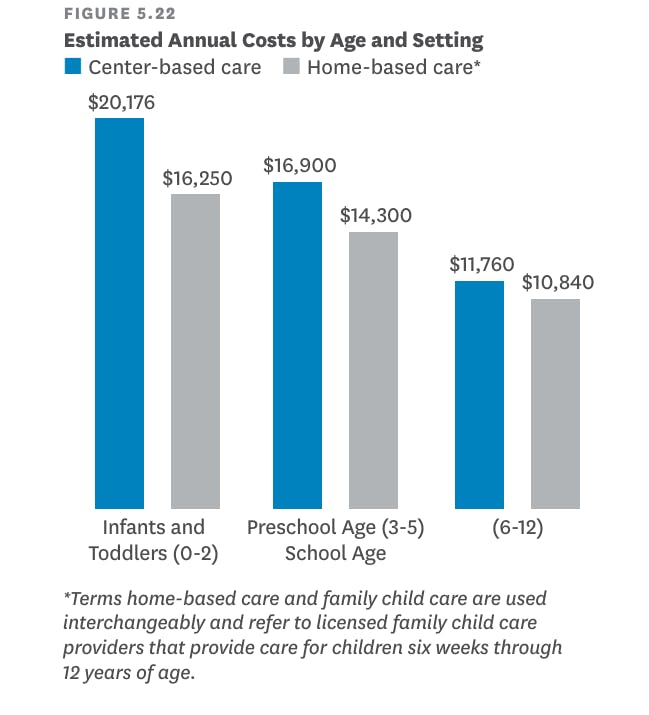
This data shows an urgent need for publicly funded child care options; families are being pushed to their financial limits in a city with overlapping affordability crises. When so few families can afford the care they need, it is clear we must invest in more ECE programs, not cut funding for them. CCC is fighting alongside elected officials and other advocacy organizations through the Campaign for Children to reverse the $170 million in cuts to child care programming still included in the FY25 city budget. As we fight for a pathway to universal child care, protecting the current system is critical for family well-being. Take action with us now to fight these cuts and help protect the needs of young families across the city.
Key findings from our flagship data report really emphasize the urgent need for city investments that address disparities highlighted by an uneven pandemic recovery and affordability crises in housing, child care, and food security. We encourage you to view the full data book online and learn more about child and family well-being across even more topic areas.
View Keeping Track 2024 Here > View All CCC Take Action Campaigns >

